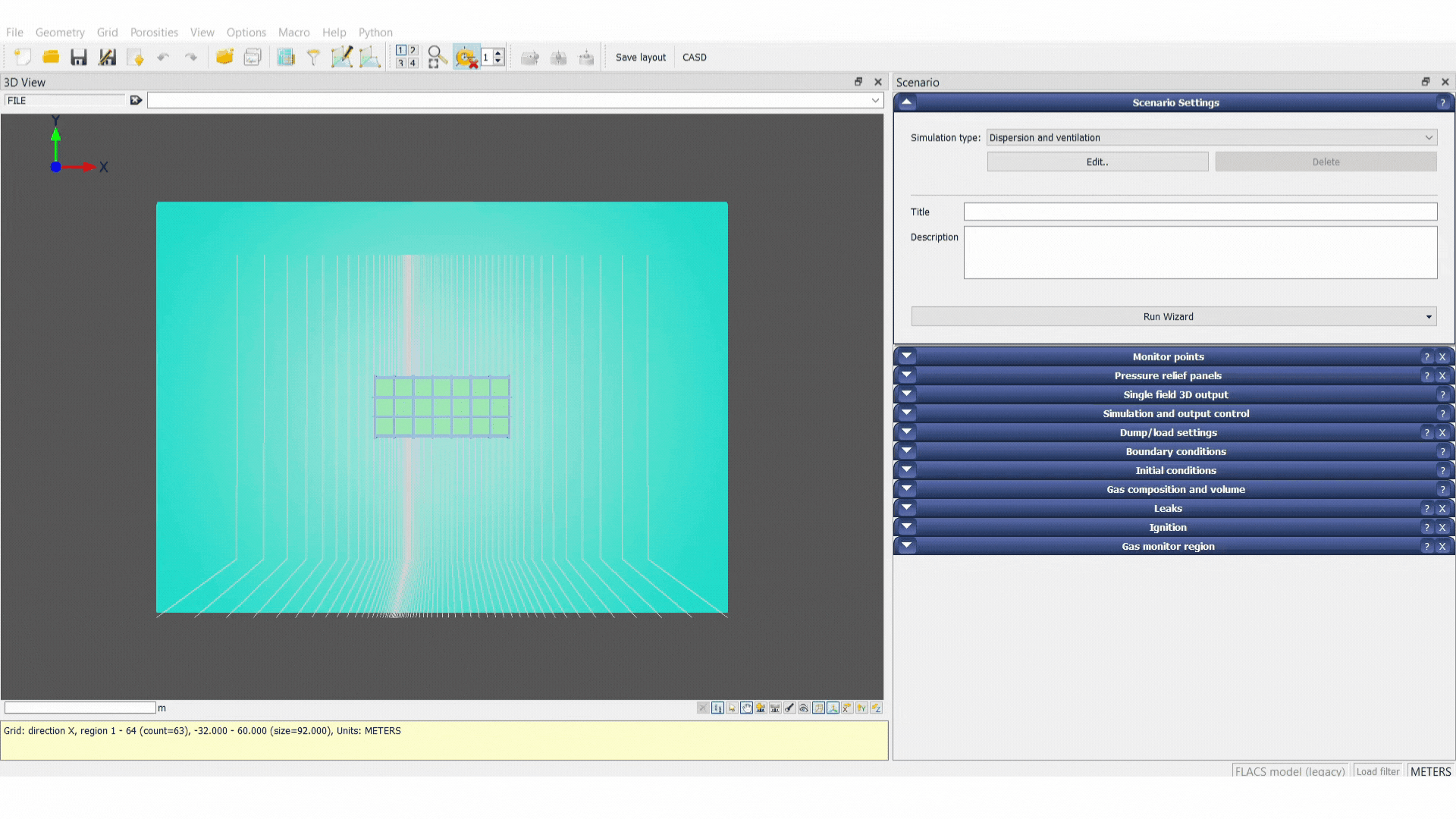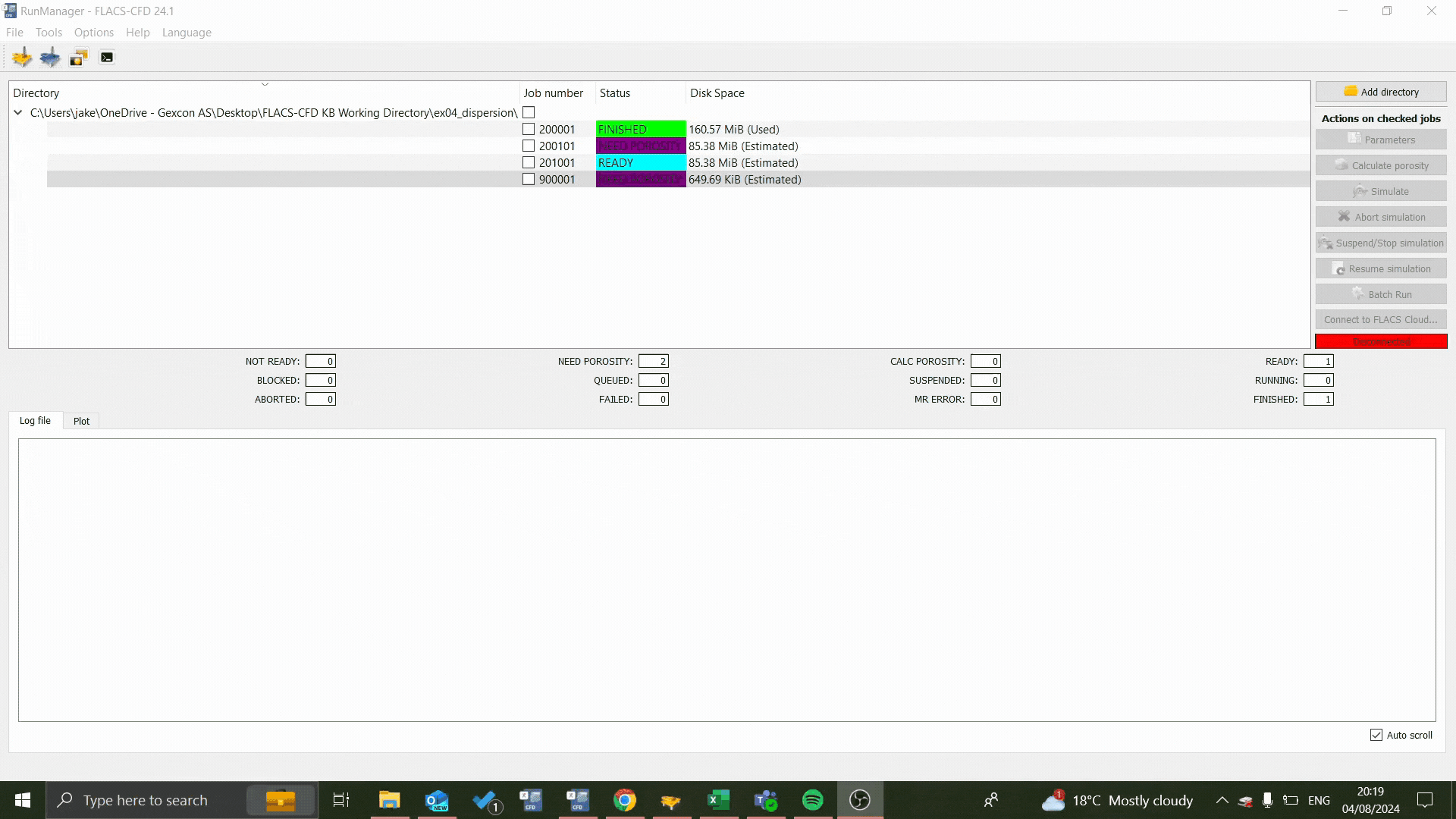- 05 Aug 2024
- 1 Minute to read
Porosity calculator
- Updated on 05 Aug 2024
- 1 Minute to read
The porosity calculator, Flacs Geometry Calculator (FGC), is used to calculate the area and volume porosities. The porosity is a value between 0 and 1 for the mean blockage of a control volume (i.e., a three-dimensional grid cell) based on the geometry present. A value of 0 means that the control volume is completely blocked by the geometry, a value of 1 means that the control volume is completely open.
Two measures of porosity are calculated within FLACS:
Volume porosity: mean blockage of the inside volume of the control volume
Area porosity: blockage of the surface area of the control volume
Upon calculating porosities, a porosity file is created. The porosity file is also referred to as the cp-file. The file is saved in the format of cp000000.dat3. The file defines the volume and area porosities for each grid cell, calculated by FGC from the co and cg-files.
Calculating Porosities
In CASD
FGC can be started from the 'Calculate' option under the 'Porosities' menu

In RunManager
Porosities can be calculated by checking the box next to the relevant job number and selecting Calculate porosity. Once the porosity calculation is complete, Status turns to READY.
More than one job can be checked to perform multiple porosity calculations simultaneously.
The number of threads used by the FGC can be changed via Options → Preferences → Porosity → Threads used by FGC.

From the command line
For a job number 010100.
Windows: > fgc 010100
Linux: > run fgc 010100

